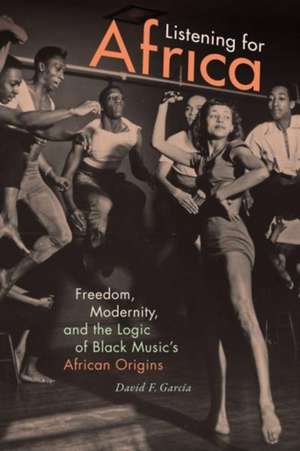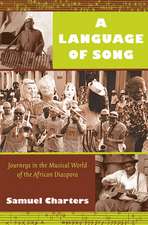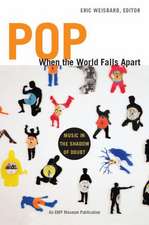Listening for Africa – Freedom, Modernity, and the Logic of Black Music`s African Origins
Autor David F. Garciaen Limba Engleză Paperback – 15 aug 2017
| Toate formatele și edițiile | Preț | Express |
|---|---|---|
| Paperback (1) | 301.20 lei 6-8 săpt. | |
| MD – Duke University Press – 15 aug 2017 | 301.20 lei 6-8 săpt. | |
| Hardback (1) | 889.61 lei 6-8 săpt. | |
| MD – Duke University Press – 15 aug 2017 | 889.61 lei 6-8 săpt. |
Preț: 301.20 lei
Nou
Puncte Express: 452
Preț estimativ în valută:
57.64€ • 60.30$ • 47.88£
57.64€ • 60.30$ • 47.88£
Carte tipărită la comandă
Livrare economică 02-16 aprilie
Preluare comenzi: 021 569.72.76
Specificații
ISBN-13: 9780822363705
ISBN-10: 0822363704
Pagini: 376
Dimensiuni: 152 x 229 x 20 mm
Greutate: 0.5 kg
Editura: MD – Duke University Press
ISBN-10: 0822363704
Pagini: 376
Dimensiuni: 152 x 229 x 20 mm
Greutate: 0.5 kg
Editura: MD – Duke University Press
Notă biografică
Cuprins
Preface ix
Acknowledgments xi
Introduction 1
1. Analyzing the African Origins of Negro Music and Dance in a Time of Racism, Fascism, and War 21
2. Listening to Africa in the City, in the Laboratory, and on Record 74
3. Embodying Africa against Racial Oppression, Ignorance, and Colonialism 124
4. Disalienating Movement and Sound from the Pathologies of Freedom and Time 173
5. Desiring Africa, or Western Civilization's Discontents 221
Conclusion. Dance-Music as Rhizome 268
Notes 277
Bibliography 323
Index 345
Acknowledgments xi
Introduction 1
1. Analyzing the African Origins of Negro Music and Dance in a Time of Racism, Fascism, and War 21
2. Listening to Africa in the City, in the Laboratory, and on Record 74
3. Embodying Africa against Racial Oppression, Ignorance, and Colonialism 124
4. Disalienating Movement and Sound from the Pathologies of Freedom and Time 173
5. Desiring Africa, or Western Civilization's Discontents 221
Conclusion. Dance-Music as Rhizome 268
Notes 277
Bibliography 323
Index 345














